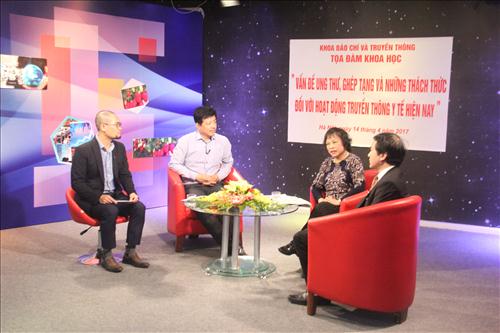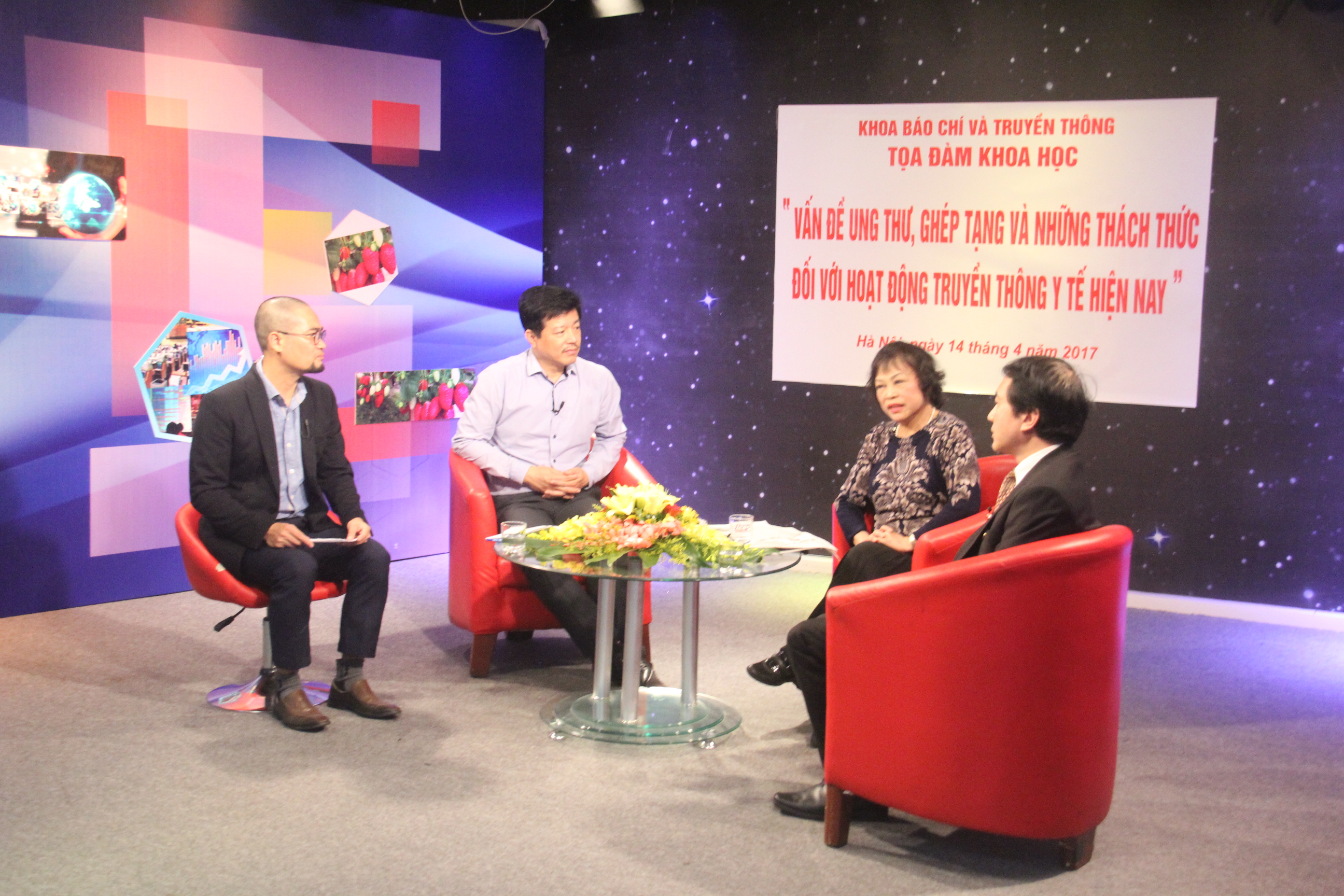
Guests attending the discussion included: Prof. Dr. Trinh Hong Son - Deputy Director of Viet Duc Hospital, Director of the National Organ Transplant Coordination Center; Associate Prof. Dr. Nguyen Thi Minh Thai - lecturer of the Faculty of Journalism and Communication; journalist Vu Manh Cuong - Deputy Director of the Department of Communication and Emulation and Reward, Ministry of Health.
The seminar is a forum providing the hottest information about the alarming increase in cancer in Vietnam. Accordingly, Vietnam currently ranks second in the world in cancer incidence. According to statistics from the national cancer prevention project, each year in Vietnam, 80,000 people die from cancer and 150,000 new cases are diagnosed. The amount of health insurance paid for cancer is up to hundreds of millions of dollars each year. In addition, the guests also shared about the increasing need for organ transplants - one of the important solutions in Vietnam to treat patients with incurable diseases.

From left to right: journalist Nguyen Cao Cuong - Deputy Director of CMP, journalist Vu Manh Cuong, Associate Professor, Dr. Nguyen Thi Minh Thai, Professor, Dr. Trinh Hong Son
From many different perspectives, the speakers emphasized the important role of the media in disseminating accurate and timely information in the medical field, raising awareness and understanding of society in health care, creating active cooperation between the medical sector and the people in repelling diseases and improving the quality of life.
Journalist Vu Manh Cuong believes that there is still a situation where newspapers report hastily and inaccurately about medical activities, which greatly affects the activities of doctors, nurses and hospitals as well as people's trust in the medical system. He illustrates this by saying that some newspapers have not fully reported on the deaths of children due to vaccinations, causing many parents to stop vaccinating their children due to concerns about the risks. This could lead to outbreaks of diseases in the community in the coming years that we can easily control with vaccinations. Journalist Vu Manh Cuong also believes that the medical field is a broad field of expertise, so it also challenges journalists to have certain knowledge about this industry in order to have a thorough view of the events that occur.
From an insider's perspective, Dr. Trinh Hong Son said: he and many colleagues were very upset by some of the false or biased information that the press reported about the treatment of patients. That made doctors have to think of ways to treat patients but also worry about how to protect themselves from public opinion. He also suggested that the press and media should aim to disseminate positive and practical information, for example, find ways to explain to the public and the people the humane meaning of voluntary organ donation in brain-dead patients to give other patients a chance to live.
From the perspective of a cultural and communication researcher, Associate Professor, Dr. Nguyen Thi Minh Thai believes that medical communication needs to be closely linked to culture and communication in the medical field must be humane and consistent with Vietnamese culture. She explains that the current situation of organ donation sources in Vietnam is still limited, which is rooted in the cultural concept of life and death of Vietnamese people. This is what causes people to hesitate about organ donation. Understanding this, journalists can communicate correctly and "accurately" to remove this psychological barrier, thereby not only supporting the medical sector in professional work but also contributing to bringing life opportunities to many people.
The guests also suggested that in order for communication activities in health care in particular or in other specialized fields to be effective, right from the training stage at the university level, students need to be taught specialized subjects on this content. Sharing about this issue, Associate Professor, Dr. Dang Thu Huong - Head of the Faculty of Journalism said that in the training program of the Faculty, there is a specialized journalism course to provide students with knowledge and skills in journalism and communication in each specific field. And today's discussion is also an activity in the roadmap to build specialized journalism subjects that are increasingly high quality and effective, suitable for the needs and realities of life.
Author:Thanh Ha
Newer news
Older news